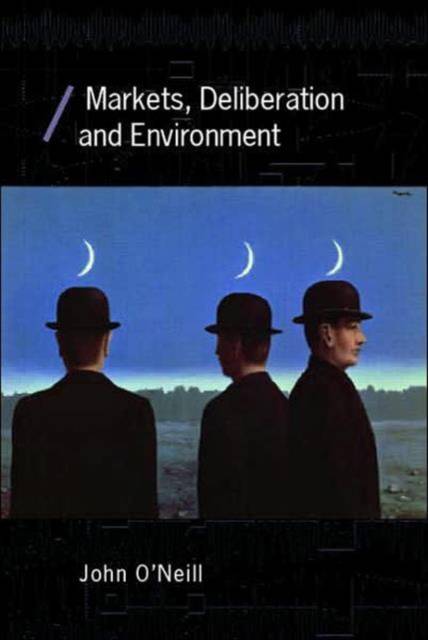
- Afhalen na 1 uur in een winkel met voorraad
- Gratis thuislevering in België vanaf € 30
- Ruim aanbod met 7 miljoen producten
- Afhalen na 1 uur in een winkel met voorraad
- Gratis thuislevering in België vanaf € 30
- Ruim aanbod met 7 miljoen producten
Omschrijving
What is the source of our environmental problems? Why is there in modern societies a persistent tendency to environmental damage? From within neoclassical economic theory there is a straightforward answer to those questions: it is because environmental goods and harms are unpriced. They come free.
This position runs up against a view which runs in entirely the opposite direction, that our environmental problems have their source not in a failure to apply market norms rigorously enough, but in the very spread of these market mechanisms and norms. The source of environmental problems lies in part in the spread of markets both in real geographical terms across the globe and through the introduction of markets mechanisms and norms into spheres of life that previously have been protected from markets.
In this book, John O'Neill conducts a thorough examination of these two opposing viewpoints covering a discussion of the ethical boundaries of markets, the role of private property rights in environmental protection, the nature of sustainability and the valuation of goods over time.
This book is essential reading for undergraduate and postgraduate students studying courses in ecological and environmental economics.
Specificaties
Betrokkenen
- Auteur(s):
- Uitgeverij:
Inhoud
- Aantal bladzijden:
- 241
- Taal:
- Engels
- Reeks:
Eigenschappen
- Productcode (EAN):
- 9780415397124
- Verschijningsdatum:
- 14/12/2006
- Uitvoering:
- Paperback
- Formaat:
- Trade paperback (VS)
- Afmetingen:
- 161 mm x 233 mm
- Gewicht:
- 385 g

Alleen bij Standaard Boekhandel
Beoordelingen
We publiceren alleen reviews die voldoen aan de voorwaarden voor reviews. Bekijk onze voorwaarden voor reviews.











